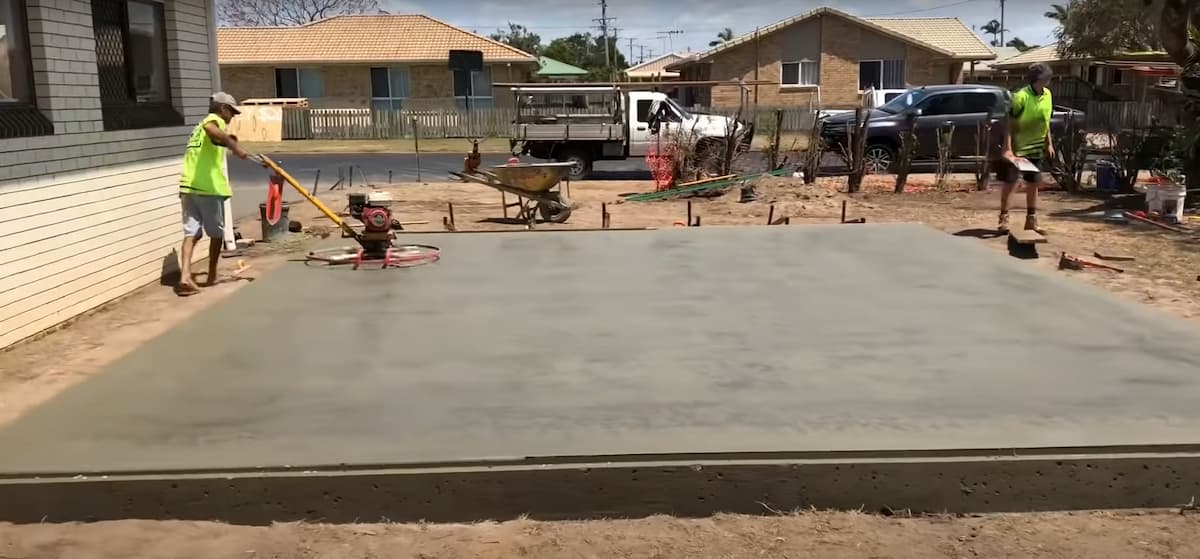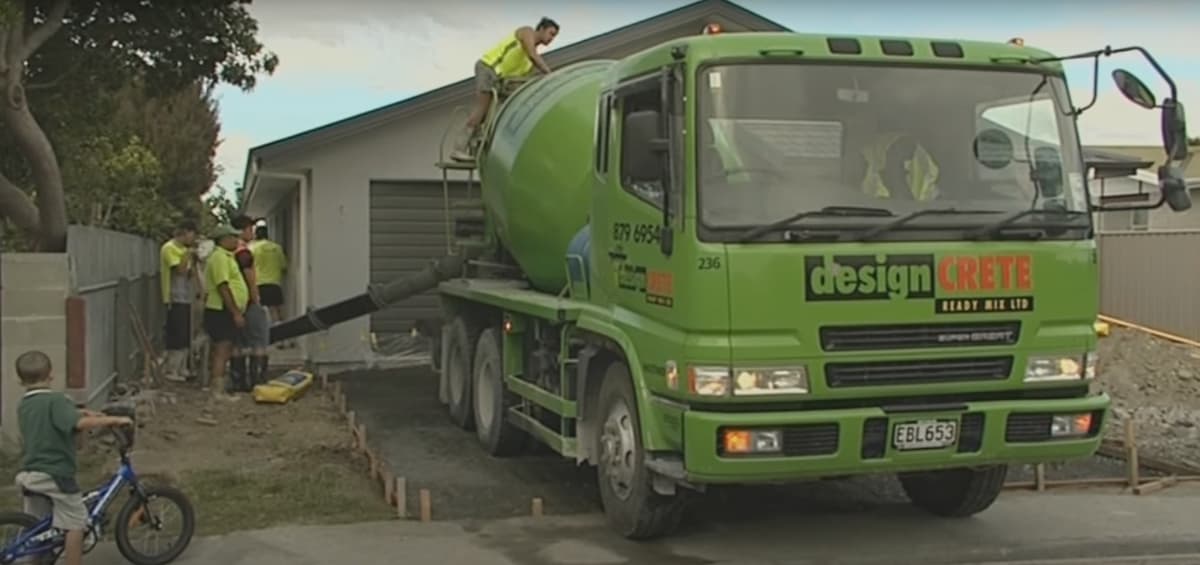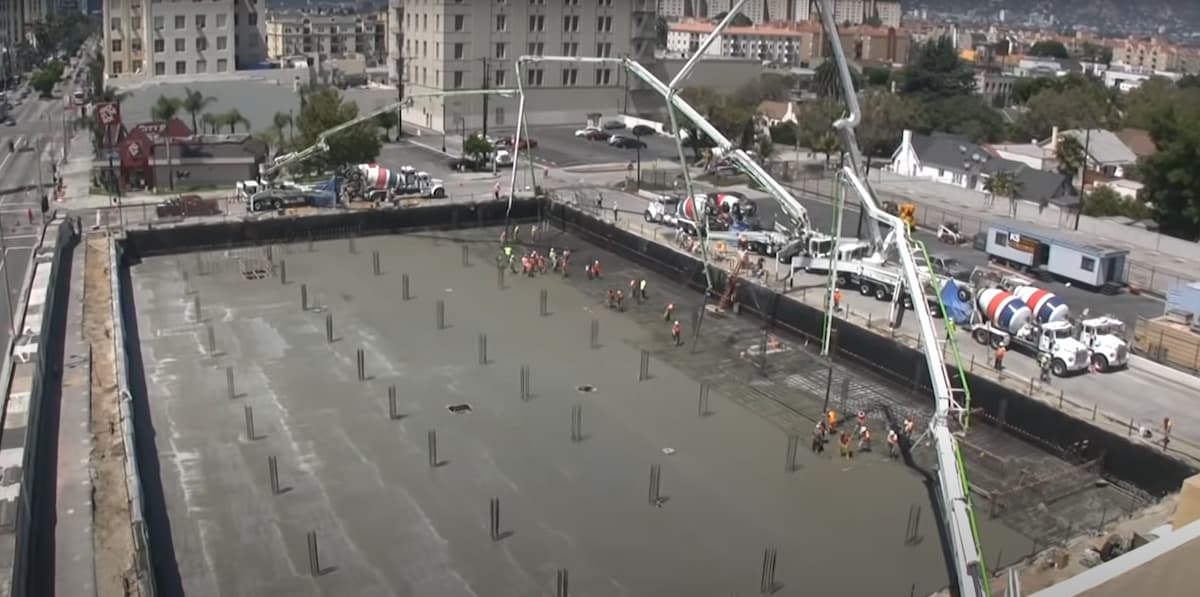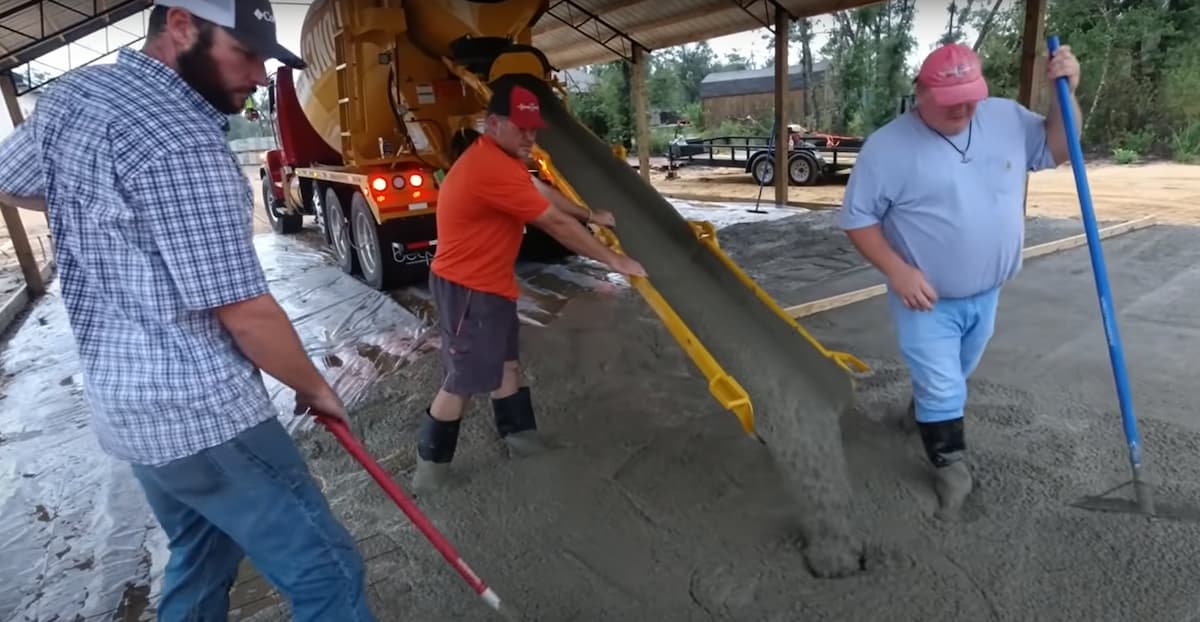
Concrete is one of the most commonly used materials in our lives, it is used for construction, manufacturing and decorative purposes. It serves as a structural medium to keep buildings sturdy and safe. However, despite its benefits, concrete has one major setback-it absorbs water.
The fact that it can be easily moulded makes it porous by nature, hence it becomes very susceptible to damages caused by chemical reactions within the structure. Most of these problems are attributed to an invisible enemy called carbonation (CO 2 ). Carbonation occurs when carbon dioxide (CO2) mixes with moisture in the air or is trapped inside masonry surfaces which causes deterioration of both exterior and interior structures.
One way of preventing this phenomenon is by applying a sealer on the concrete surfaces. A sealer is a barrier material that prevents the penetration of water or other liquids into masonry surfaces. It also ensures that harmful chemicals are kept away from being absorbed by placing an impermeable coating on the surface thereby preventing deterioration in the long run.
Concrete Sealer
Sealers serve as additional protection against carbonation, alkali-silica reaction (ASR), salt damage, rusting and degradation in weather conditions.
What is Concrete Sealing?
Using concrete sealers is a method of applying sealers on concrete surfaces in order to prevent the penetration of substances like water and other cleaners. It consists of three main processes
- Surface preparation
- Product application
- Drying time.
Surface preparation ensures even coatings when it comes to product application
Before an appropriate concrete sealer is applied, the area may be completely cleaned in order for the sealer to bond well with the concrete. A wire brush or grinder may be used in chipped off old paint, scale and any other loose material that prevents adhesion. After that, there are two methods of cleaning. High-pressure washing (water jet) removes oil stains and penetrates deep into pores while preserving the strength of the concrete structure, this method is preferred for tough stains like oil and paint, or manual cleaning, which removes surface dust, dirt, rust or other contaminants present on the concrete.
The second method is by using an evaporative cleaner, which is a liquid solution that removes oil-based contaminants and eliminates surface dust. This is done after the high-pressure washer to ensure that the area is completely clean before coating.
Concrete After Professional High-pressure Washing
Product application depends on the requirements of each property as not all sealers are made with the same components. Some apply a thin layer of sealer while some apply it in multiple coats to ensure more protection from carbonation and water penetration. Note that sealers can be applied by spray or roller depending on your preference. Drying time also varies according to product used since some require re-coating after a few days while others take weeks before they can be re-touched.
Applying a concrete sealer is a long term investment since it protects your concrete from unwanted water and chemical reactions. It gives you the chance to prolong your concrete’s life and increase its lifespan by many years.
Types of Sealers for Concrete
There are various materials that can be used to seal concrete but it all boils down to effectiveness, durability and cost-effectiveness when choosing the sealer to use for your application. Here are some materials commonly used in sealing concrete.
Silicone Sealers
Silicone sealers are known for their durability, high-quality materials used in manufacturing makes them cost-effective and efficient when treating surfaces. It’s considered a high-quality concrete sealer. These types of sealers are commonly used to protect concrete from wet conditions, prevent salt damage and rusting. They also have excellent elasticity which allows the surface to restore its former state even after being subjected to pressure or movement caused by environmental factors. There are two major types of silicate-based sealers namely acrylic polymer sealers and epoxy resin sealers.
Acrylic Polymer Sealers
Acrylic polymer sealers are usually applied via spray machine but can also be brushed on depending on the texture you want to achieve. This type of sealer is ideal for exterior applications where it may serve as a protective coat against weather conditions such as rain and snow. It can also withstand high degrees of pressure, making it suitable for driveways and walkways. Although acrylic sealers are cost-effective to use, they may not be as effective as other types especially when used on surfaces that undergo heavy traffic.
Acrylic-Silicate Based Sealers
Acrylic sealers are made up of a mixture of an acrylic and silicate compound. This allows the sealer to have both elasticity and durability needed for surfaces that require frequent movement such as exterior concrete structures. Since it can be applied via spray, it is much more cost-effective than other types of sealers which makes it ideal for those who are on a budget but still wants to protect their concrete surface.
Epoxy Resin Sealers
This type of sealer is made up of chemical components which makes it very easy to apply and cure on the surface quickly. Thus, epoxy-based sealer can be applied even on hot concrete without causing deterioration within the concrete structure. One of the most important benefits of using this type of sealer is its ability to protect against harmful elements such as salt damage and rusting because of its excellent elasticity properties.
Chemical Resistant Sealers
For people who work in facilities that are exposed to chemicals, you could consider using this type of concrete sealer. It is specifically designed to offer protection against different harsh elements such as acids which is why it is commonly used by the chemical industry. These types of sealers are known for their durability and are usually applied in heavy-duty applications with high movement rates due to constant traffic or manipulation/maneuvering.
Polyurethane Sealers
This concrete sealer is one of the most widely used types of sealer in protecting concrete areas because polyurethanes can be used in both exterior and interior structures. It offers superior performance when compared to other materials because it exhibits excellent flexibility even after curing on the concrete area. It is highly elastic which makes it durable and flexible enough to accommodate various movements that occur on the concrete surface.
Polyurethanes are also ideal for open spaces lined with heavy traffic because regular polyurethanes can withstand exposure to high amounts of foot traffic without being worn out by constant movement.
Concrete Sealant
Using concrete sealers is a great way to protect the concrete from harsh elements such as wind, rain and other weather conditions. Especially when concrete sealers are used on a concrete driveway. Sealants can also be used on interior surfaces to prevent dust accumulation and stains. There are several types of sealers available in the market which you can choose from depending on your budget and needs. You could consider choosing a type of sealer that may last longer while providing excellent coverage for exterior or interior pavement structures.
What is Concrete Sealing?
A concrete sealer is the application of a sealant on the surface of the concrete to protect it from various factors such as stains, moisture and other elements. Sealants may be applied using a spray applicator or a paintbrush depending on your needs and preference. Not only does this process make the appearance of the structure attractive, but it also preserves its life by making it resistant to cracks, degradation and damage due to weather conditions.
Why do You Need Concrete Sealing?
There are several reasons why using concrete sealers is important whether you’re after having an amazing looking concrete surface for commercial purposes or protecting your own patio at home from outdoor elements.
First, applying sealers prevents dust accumulation that can lead to discolouration especially for those with coloured coating on their surface.
Second, sealing your concrete surface can help in preventing cracking which is a common problem to pavements exposed to different weather conditions. Cracks not only destroy the aesthetic appeal of the structure but also compromise its integrity and durability.
Third, this process prevents staining on the surface because applying sealers to your pavement keeps oil, grease and other dirt from sticking on your concrete structure which otherwise makes it look unattractive.
Where do You Use Concrete Sealing?
Concrete sealing is not only used for commercial purposes such as sidewalks and driveways but can also be applied for residential homes such as patios and pool decks. This helps in preserving the life span of these structures while keeping their appearance attractive. You can choose from several types of sealers depending on whether you want a coating for heavy traffic or treatment for water repellency. Concrete pavers and stamped concrete can also benefit when you apply sealer, in order to protect them from dust accumulation and discolouration due to stains.
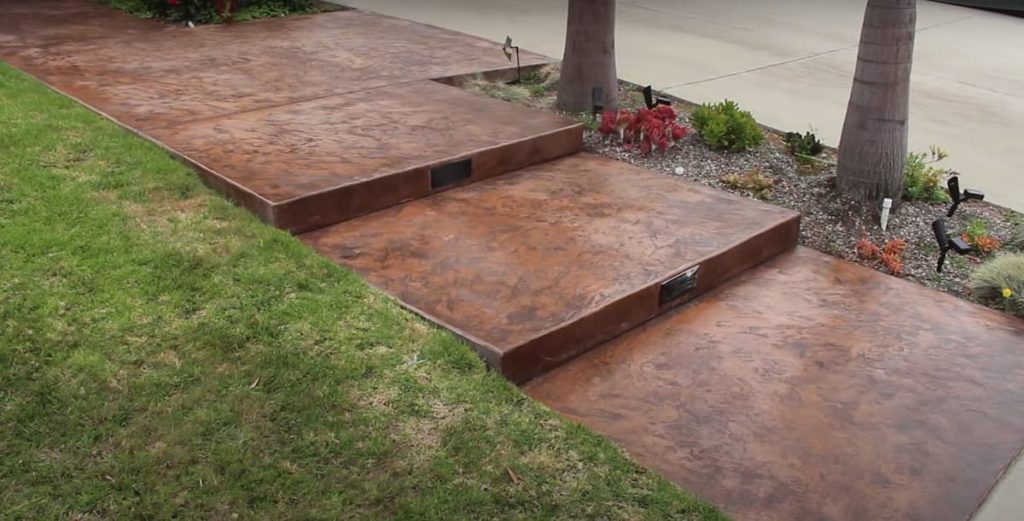
When should You Use a Concrete Sealer?
You could consider using sealant on your concrete structure whenever you plan to renovate it or think that its appearance is not up to par. This may greatly help in protecting the integrity and appearance of the concrete by making it dust, water and stain-resistant. You can also choose different types of sealants depending on whether you want a coating for heavy traffic or protection from water and oil-based stains and other elements. Exposed aggregate concrete is another type of structure that greatly benefits from this process in order to protect it from stains and discolouration.
Can you Use a Concrete Sealer on Existing Concrete Driveways?
Yes. You can use a concrete sealer to revitalize your old and worn out driveway by providing it with a protective layer that keeps away dirt, stains and other elements.
How Often Should You Apply a New Layer of Sealer on Your Concrete Driveway?
New layers of sealants may be applied every three years depending on the intensity of usage. However, if your driveway is exposed to harsh outdoor elements such as snow, rain or dust then you could consider sealing it twice or more per year to ensure durability. Apply sealer only after the existing sealer layers has been removed, and make sure that the surface is clean and ready for protection.
Where Can I Buy Concrete Sealant?
You can purchase concrete sealers at hardware stores near you or online for added convenience. There are several types of products available in the market ranging from water-based to oil-based sealants that can be applied on your driveway. You could also ensure to follow the instructions on the product’s packaging to know more about its application and necessary safety precautions.
How Much do You Need?
One 4.5 litres of concrete sealant is typically used for every 23 square metres of surface area depending on the thickness required by your surfaces. Always opt for a high-quality product with added benefits such as crack resistance, water repellency or makes it dustproof.
Are There Any Disadvantages When Using Concrete Sealing?
Concrete sealing comes with various benefits but this doesn’t mean that it is totally immune to all issues or disadvantages associated with other types of pavements. For example, applying too much sealer may result in puddles due to water accumulation. You could also consider following the instructions on the product’s packaging to avoid any problems in its application process.
What are the Benefits of Sealing Concrete?
Here are some of the main benefits you can expect when using concrete sealers
- Protection against cracking, staining and dust accumulation compromises your pavement’s overall appearance and durability.
- Protects your driveway from oil-based stains, chemicals used by cars and other sources of unwanted elements.
- Makes it easy for people with accessibility issues to walk or drive on your driveway without compromising its stability or integrity over time.
- Prevents puddles due to water build-up and allows the surface to easily absorb rainfall.
- Makes it easy to clean your driveway by simply washing it with water and soap even after a long time of use without compromising its integrity or appearance.
- Allows you to choose from various types and colours of sealers that can be applied depending on your preferences for appearance, strength and ease of maintenance.


